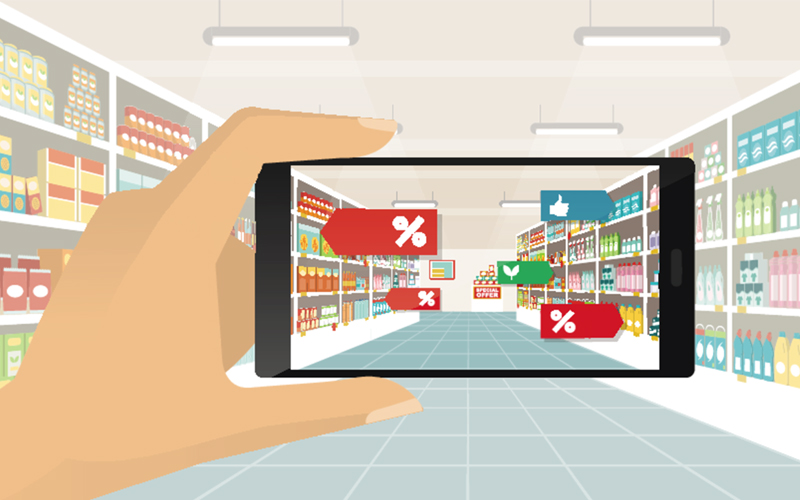The modern-day business landscape requires organisations to operate in a sustainable manner, which includes ensuring that sustainable procurement practices are in place. Procurement today is no longer only about purchasing goods and services, it has evolved into a strategic need for organisations looking to drive sustainable growth, optimise costs and mitigate risks. Procurement policies today need to address growing climate and environmental concerns too.
Sustainable all the way
New-age customers are increasingly conscious of the social and environmental impact of the products and services they use. That makes it imperative for organisations to ensure that their supply chains are completely sustainable too. This requires a review of the full lifecycle of a product, from the source including extraction of raw materials, right up to the disposal of the product when it has reached the end of its productive life. Sustainable procurement can not only help organisations meet regulatory requirements and stakeholder expectations, but it is also needed for long-term business success.
As businesses navigate through dynamic market conditions and increasing pressure to operate sustainably, the need for forward-thinking procurement strategies has never been more apparent. One such approach gaining prominence is strategic sourcing.
Traditional vs strategic procurement
Traditional procurement practices largely focus on short-term cost reduction, negotiating deals with suppliers and streamlining operational efficiencies. While these tactics remain relevant, more is needed. Strategic sourcing represents a paradigm shift in procurement philosophy. It involves a proactive and structured approach to identifying, evaluating and managing suppliers to achieve long-term value and a competitive advantage. Strategic procurement includes a focus on environmental and social concerns as well.
Key features of strategic procurement
- Category management
- Data-driven decision making
- Supplier relationship management (SRM)
- Risk management
- Sustainability and corporate social responsibility (CSR)
- Innovation and continuous improvement
An important procurement strategy is category management. This approach involves categorising products and services into groups based on common characteristics and strategic importance to the organisation. Procurement spend can then be segmented into distinct categories allowing organisations to tailor their sourcing strategies as per market dynamics. The positive side effects of this strategy are cost savings and enhanced quality and efficiency.
This is the era of big data, so procurement professionals can tap into vast reservoirs of data that are used to drive the organisation’s strategic decisions. Leveraging data analytics and market intelligence tools enables organisations to identify cost-saving opportunities, track supplier performance and anticipate market trends, among other benefits.
Building and nurturing strong and long-term relationships with suppliers is essential for driving innovation, managing risks and achieving sustainable value. SRM involves collaboration, transparency and continuous communication to align objectives, address challenges and drive success for all the parties involved. Further, the organisation and its suppliers need to work together to identify areas for improvement and to endorse sustainable practices.
Measuring and monitoring supplier performance is critical too. By implementing and tracking relevant key performance indicators (KPIs), organisations can assess supplier performance and ensure sustainability goals are met.
Procurement teams can proactively identify and mitigate risks across the supply chain by taking into account geopolitical instability, natural disasters and supplier financial viability. Implementing robust risk management practices ensures business continuity and resilience despite unforeseen disruptions. By studying all possible risks, organisations can ensure that their vulnerability to risks is minimised. The chances of brand damage and negative media focus can be effectively reduced.
As stakeholders increasingly demand ethical and sustainable business practices, procurement plays a crucial role in driving CSR initiatives throughout the supply chain. By selecting environmentally responsible suppliers, promoting fair labour practices and reducing their carbon footprint, organisations can enhance their brand reputation and create long-term value.
Procurement teams must embrace innovation and adopt a culture of continuous improvement to maintain a competitive edge. By exploring emerging technologies such as artificial intelligence (AI), blockchain and predictive analytics, organisations can streamline processes, enhance efficiency and drive innovation across the supply chain.
Strategic mindset and commitment
Procurement for the future clearly requires a strategic mindset, a forward-thinking approach and a commitment to drive sustainable growth. Although it may seem challenging at first, such an approach is a step in the right direction towards attaining long-term success.
How can Infosys BPM help?
Infosys BPM’s Category Management Plan and Execution Services aim to maximise value delivery for our clients while maintaining a strong strategic view. Our Category Control Tower (CCT) is a futuristic genome-based category management solution that delivers proactive alerts and timely insights to support category managers. We offer our clients support and execution in category strategy formulation across both direct and indirect categories.









